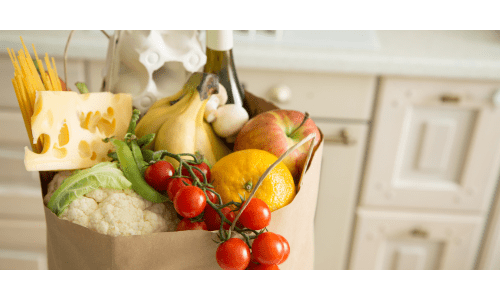High Fiber Vegetables for IBS
Irritable Bowel Syndrome (IBS) is a common gastrointestinal disorder that affects the large intestine. It can cause symptoms such as abdominal pain, bloating, gas, diarrhea, and constipation. One way to manage IBS symptoms is through diet, and incorporating high fiber vegetables into your meals can be beneficial.
High fiber vegetables can help regulate bowel movements, improve digestion, and provide a feeling of fullness. Here are some high fiber vegetables that are suitable for individuals with IBS:
1. Broccoli
Broccoli is a cruciferous vegetable that is rich in fiber, vitamins, and minerals. It is low in calories and high in nutrients, making it an excellent choice for individuals with IBS. Broccoli contains both soluble and insoluble fiber, which can help promote healthy digestion and regulate bowel movements.
- Supports healthy digestion by promoting the growth of good bacteria in the gut
- Contains anti-inflammatory properties that can reduce gut inflammation
- Rich in vitamin C and K, which are essential for overall health and immune function
2. Spinach
Spinach is a leafy green vegetable that is packed with fiber, antioxidants, and vitamins. It is easy to digest and can be a gentle option for individuals with IBS. Spinach is also low in FODMAPs (Fermentable Oligosaccharides, Disaccharides, Monosaccharides, and Polyols), which are known to exacerbate IBS symptoms.
- Provides a good source of iron, which is important for energy production and oxygen transport in the body
- Contains antioxidants that help reduce oxidative stress and inflammation in the gut
- Supports regular bowel movements due to its high fiber content
3. Carrots
Carrots are a versatile vegetable that is high in fiber and low in calories. They contain both soluble and insoluble fiber, which can aid in digestion and promote gut health. Carrots are also a good source of antioxidants, such as beta-carotene, which can help reduce inflammation in the gut.
- Supports gut health by promoting the growth of beneficial bacteria in the intestines
- Helps in regulating bowel movements by adding bulk to the stool
- Rich in vitamin A and K, which are important for vision, immune function, and bone health
4. Bell Peppers
Bell peppers are colorful vegetables that are rich in fiber, vitamins, and antioxidants. They are low in calories and easy to digest, making them a suitable option for individuals with IBS. Bell peppers contain a good amount of fiber, especially when consumed raw, which can help promote healthy digestion.
- Supports digestive health by improving gut motility and reducing the risk of constipation
- Provides a good source of vitamin C, which is essential for immune function and collagen production
- Helps in reducing inflammation in the gut due to its antioxidant properties
Incorporating high fiber vegetables into your diet can be beneficial for managing IBS symptoms. It is essential to experiment with different vegetables to find out which ones work best for your individual needs.
Remember to consume high fiber vegetables in moderation and stay hydrated to support healthy digestion. Consult with a healthcare provider or a dietitian for personalized advice on managing IBS through diet.




